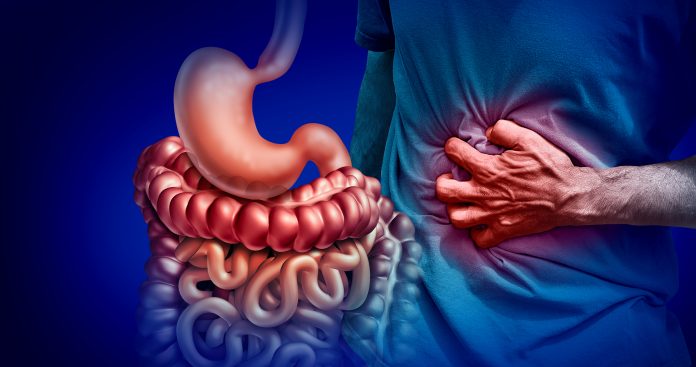
An international, placebo-controlled clinical study led by Cedars-Sinai researchers has found that a new drug therapy for moderate to severe ulcerative colitis is safe and effective in helping patients achieve clinical remission. The results of the Phase II trial are published in The New England Journal of Medicine.
Ulcerative colitis, a form of inflammatory bowel disease (IBD), affects as many as 900,000 people in the United States. It can cause significant symptoms, including stomach cramping, diarrhea, weight loss, and rectal bleeding. Current treatment options often provide only limited relief, highlighting the need for more effective therapies.
The investigational therapy, known as tulisokibart (previously called PRA023), is a monoclonal antibody developed at Cedars-Sinai that targets a protein called TL1A, which is known to contribute to the severity of ulcerative colitis.
“The investigational therapy was generated based on the concept of precision medicine; it shows promise as being both anti-inflammatory and anti-fibrotic,” said the study’s senior author Stephan Targan, MD, executive director of the F. Widjaja Inflammatory Bowel Disease Institute at Cedars-Sinai. He emphasized that the findings could “change how this complex disease is treated in the future.”
Targan and his Cedars-Sinai collaborators had previously discovered that TL1A is a master regulator of inflammation in work that his lab has conducted over the past 20 years. They have shown that not only does TL1A protect against invading pathogens, but at high levels also contributes to inflammation and fibrosis in IBD.
“Unlike other IBD treatments that can exacerbate inflammation or suppress the body’s natural anti-inflammatory responses, our findings suggest that tulisokibart modulates inflammation and the body’s anti-inflammatory mechanisms,” Targan said. “This dual action could lead to more balanced and effective management of ulcerative colitis.”
Called the ARTEMIS-UC study, the 12-week trial enrolled 178 adults from 14 countries and included a genetic-based companion diagnostic to help predict patient responses to the therapy.
Also involved in the research was Dermot McGovern, MD, PhD, a clinician-scientist and geneticist from Cedars-Sinai whose research has focused on finding which genetic variants play a role in the development of ulcerative colitis and other autoimmune disorders.
While at Oxford University nearly 20 years, McGovern and team conducted the first-ever genome-wide association study (GWAS) for IBD. Their work identified a variation in the TNF superfamily 15 (TNFSF15) that was associated with the development of both ulcerative colitis and Crohn’s disease. TL1A, which was simultaneously being studied by Targan is encoded by TNFSF15. Their parallel research led McGovern to join Targan at Cedars-Sinai to collaborate on IBD research.
“Findings from the ARTEMIS-UC study exemplify how combining genetics and biology can transform IBD care,” noted McGovern. “Previously we have only been able to prescribe a medication to a patient that we think will work well, but going forward we could imagine telling the patient, ‘Actually, the genetic test suggests that you would be more likely to respond to this therapy.’”
Tulisokibart works by modulating inflammation without exacerbating it. Unlike existing IBD treatments, which may suppress the body’s natural anti-inflammatory responses, tulisokibart aims for a more balanced approach. “Our findings suggest that tulisokibart modulates inflammation and the body’s anti-inflammatory mechanisms,” Targan explained.
Planning is now underway for a Phase III clinical trial, to investigate the long-term safety and effectiveness of tulisokibart in a larger cohort of patients. A goal of the study will be to find out how patients respond to the therapy over longer periods of time.





